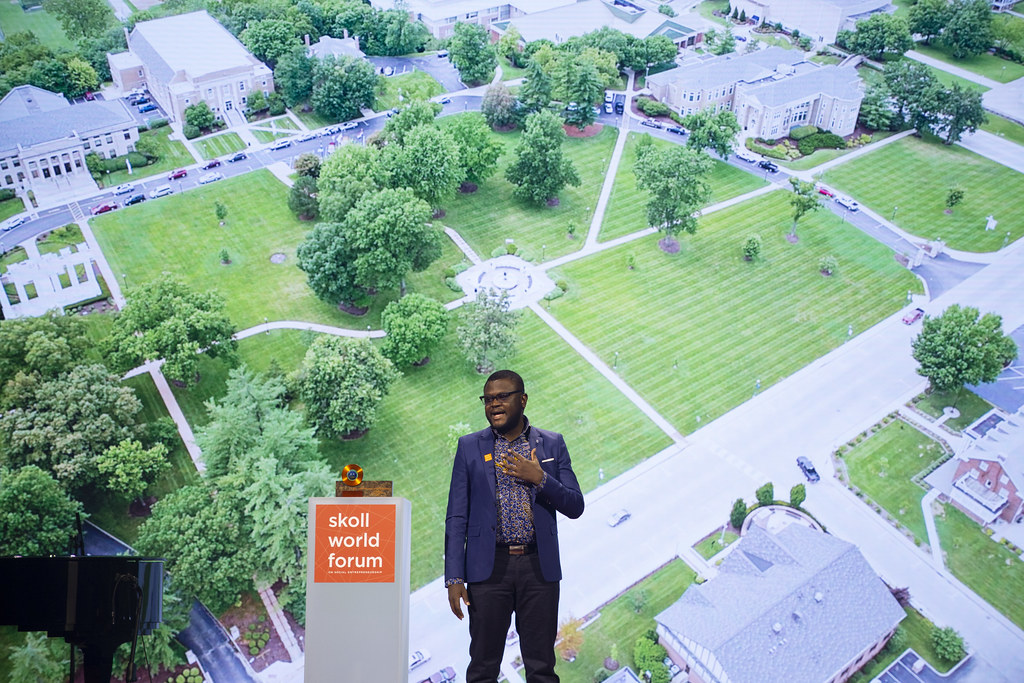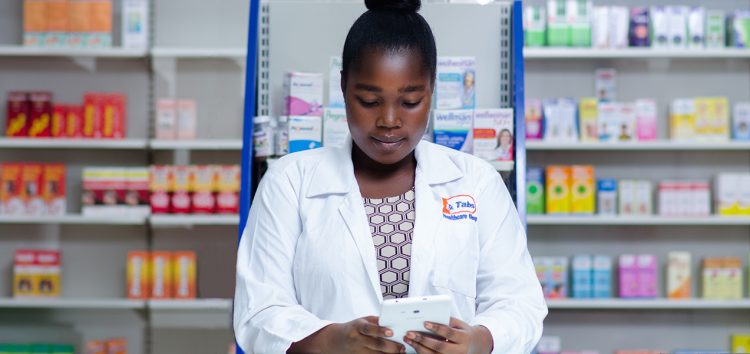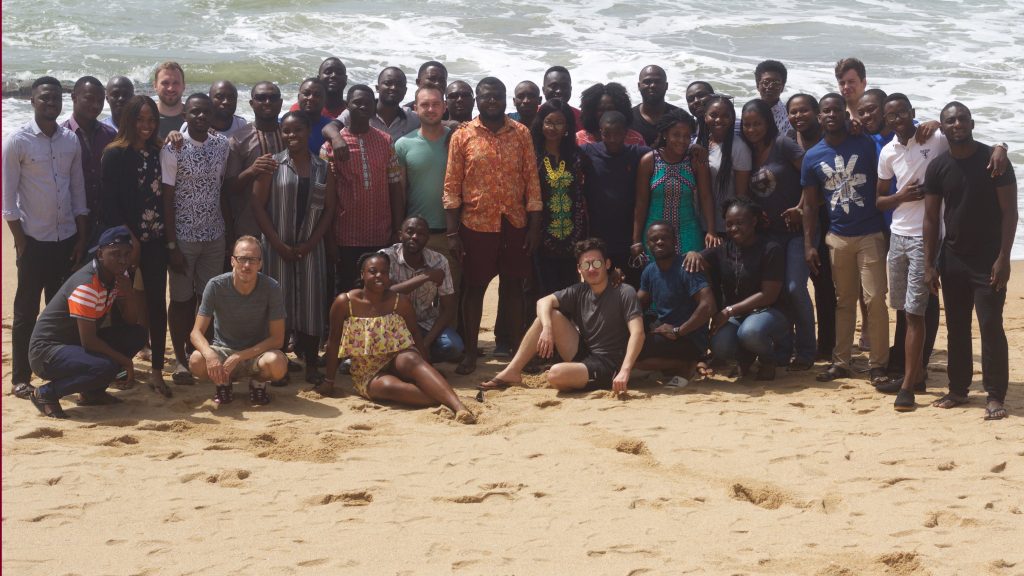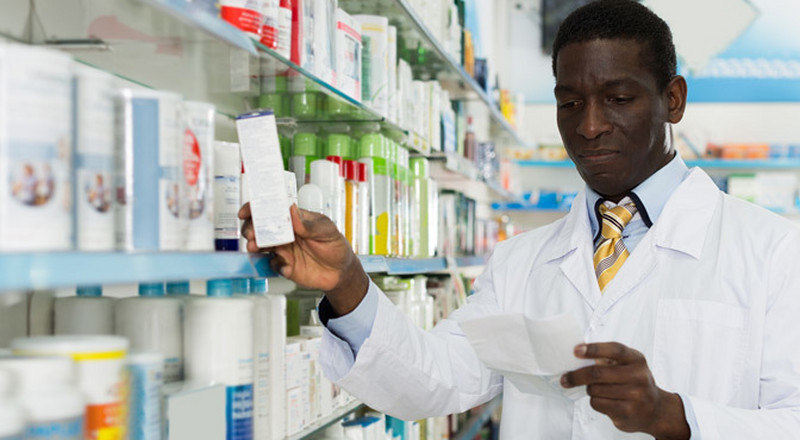For a while, I have been an impressed follower of the strides which Gregory Rockson and his team at mPharma have been making. The health tech company manages prescription drug inventory for pharmacies and their suppliers and there have been reports of significantly improved efficiency.
Its proprietary Vendor Management Inventory (VMI) system is already being used in over 250 pharmacies in Ghana, Nigeria, Kenya, Zambia and Zimbabwe. mPharma’s goal is to improve the access and affordability of high-quality drugs for patients across the continent.
The company was founded by Daniel Shoukimas, Gregory Rockson and James Finucane in 2013.
I had a chat about the African tech ecosystem on Twitter Spaces hosted by Akintunde Sultan of TalentQL and having Muyiwa Matuluko of Techpoint, Koromone Koroye of Techcabal and Benjamin Dada as co-speakers. I recall mentioning mPharma as one of the tech companies making an impact across the continent.
This led me to have a chat with Gregory Rockson, the Co-Founder & CEO on business expansion and the lessons learnt along the way. Here are some excerpts from the conversation that will interest you:
On starting and staying
I was curious about Gregory’s motivation to start a health tech startup considering his non-medical educational background. He holds a Bachelor’s Degree in Political Science from Westminster College. He was a Public Policy and International Affairs Fellow (PPIA) from Princeton University and a Rotary Scholar at the University of Copenhagen.


The founder revealed that while he may not have completed a degree in Medicine or Pharmacy, he actually started his education in that field. “In Ghana, you have to take some courses in high school. I did science. I was a pre-med student in college. I dropped out as a pre-med student.
“So while I was out of the clinical part of healthcare, I am still pretty much interested in the business side of healthcare,” he explains.
Why the interest in health tech?
Gregory believes that being healthy is a priority human need hence the need to get involved. “There are enough people creating platforms to help people transact and save money but we also need to have enough people solving foundational problems whether in healthcare or education. These are fundamental to the development of any prosperous economy,” he says.
Compared to the thriving Fintech space, health care hasn’t attracted a significant volume of funding and players over the years. Figures showed that VC funding for African fintech startups had risen by 51% in 2020. The sector raised almost $350 million during the first quarter of 2020 alone.
A bit of numbers: in 2020, Flutterwave and InfraCredit raised $35 million and $27 million respectively. Other sectors’ top investment numbers include Lumos (energy) $35 million while Healthtech startup, 54Gene raised $15 million.


This year alone, Flutterwave has closed a $170 million Series C making a total of $250 million in funding across 13 rounds. Another Nigerian digital bank, Kuda raised $25 million in Series A funding. This follows the $10 million it raised in November 2020, the largest ever seed round in Africa.
These were barely weeks after fintech startup, Paystack has been acquired by Stripe, a US fintech company that offers similar payment gateway service for companies and businesses.
I was curious to know if the prospects of the Fintech space isn’t alluring enough for him and he has this to say:
“Fintech is fine but it is about helping people spend. We will not have money to spend on the payment process if we are all sick. It may not be the most financially lucrative sector right now but when I think of the impact and building a transformative journey on the continent, I think no greater work can be done than fixing our broken healthcare infrastructure.”
On mPharma’s expansion and key learnings
Now, mPharma is present in Ghana, Kenya, Nigeria, Rwanda and Zambia. The company claims to serve over 100,000 patients monthly and has distributed over a million drugs to Africans from 300 partner pharmacies across the continent.
I asked Rockson about his biggest learnings from the expansion drive and he told me that his biggest learning so far is the similarity of the markets in one regard:
“We tend to chuckle when people refer to Africa as a country but one of my biggest learnings is how similar some of the challenges we face are. I could be in Accra, Lagos, Nairobi or Lusaka and it feels like the problems people tell me they are facing are the same everywhere. More like I never left Accra or Lagos.”
For Gregory, more than anything else this signals opportunities:
“From a value offering standpoint, what that tells me is that if you create value in one of these countries that addresses one of these fundamental problems, scaling to other countries becomes easier. Because at the end of the day, you are addressing a fundamental problem that people in other countries are facing.”
This should not in any way discount the place of cultural differences from one country to another. Gregory agrees:
” I think people are different because of the way our cultures are different. There might be similarities but the culture in Ghana is different from Nigeria, Kenya or Zambia. Certainly, the way people respond to work and how they think about the solution we offer is different.”
He also adds that mPharma has responded to the challenge of cultural differences in its unique way. “There is the need to build an organisation that is pan-African. What we have done is blend these different cultures to create a unique company culture that drives productivity.”
The uniqueness of Ethiopia
In 2019, mPharma acquired Haltons, the second-largest pharmacy chain in Kenya. Recently, it signed a franchise agreement with Belayab Pharmaceuticals for its distribution in Ethiopia, leveraging its hold in its subsidiary, Haltons Limited.
Gregory informed me that mPharma is yet to go live in Ethiopia. Explaining the need for franchising in Ethiopia, he explained that foreign companies are not allowed to operate in the retail sector at the moment. It means that this sector is still closed to foreign investors.
“So, our expansion in Ethiopia is actually a franchising agreement with the biggest conglomerate in the country who has a franchising arrangement with one of our retail brands. That resulted in the launch of a brand in Ethiopia as a pharmacy chain.”
Mulling over the experience so far, Gregory thinks that the venture into Ethiopia is a “new experience” for his team. “We are learning as we go. Of course, there is a possibility that it will open up further opportunities for expansion through franchising,” he said.
Biggest challenge so far
mPharma is one of the well-funded health tech startups in Africa and has raised over $50 million. Last year when it secured a Series C round of $17 million, Helena Foulkes, former president of CVS, the largest pharmacy retail chain in the U.S., was appointed to its board.
When I asked Gregory about his teams biggest challenge so far, he pins it down to talent development: “I can say continuing to find and improve the best talent in the health care space is our biggest opportunity and our biggest challenge. Because at the end of the day, mPharma is going to succeed or fail based on the calibre of people we have.”


This challenge is not common to Gregory and his team at mPharma. Many African founders have shared painful experiences about talent sourcing, talent retention and talent development. It is often a conflicting narrative of how Africa is becoming the talent capital of the world. I asked Gregory about the conflict of both ideas and he has this to say:
“Not sure it is conflicting. We are not creating so much for new talents as much as we have talents switching roles especially at the very experienced levels of hire. That is why as the CEO, I spend a lot of time on LinkedIn talking about the problems we are solving at mPharma so that future hires can consider joining our team an interesting and challenging prospect.”
Solutions for the African health care system
Rounding up the conversation, I was curious to know if there is a silver bullet to the problems of the healthcare space across the continent from Gregory’s standpoint.
For instance, the pharmaceutical market in Africa is said to be worth $50 billion. Yet, it suffers from challenges such as fragmentation in pharmacy retailing, poor standards and very high prices owing to the absence of regulation.


The mPharma CEO believes that it is imperative we “become more creative about it so we build new business models that will increase access to health care.
“India is a good example of that where the cost of certain procedures is at the fraction of what other countries charge and that is why India has so many medical tourists. The African opportunity is still huge! We know what we need to do. The question is how do we go for it and make it sustainable?” he concludes.






